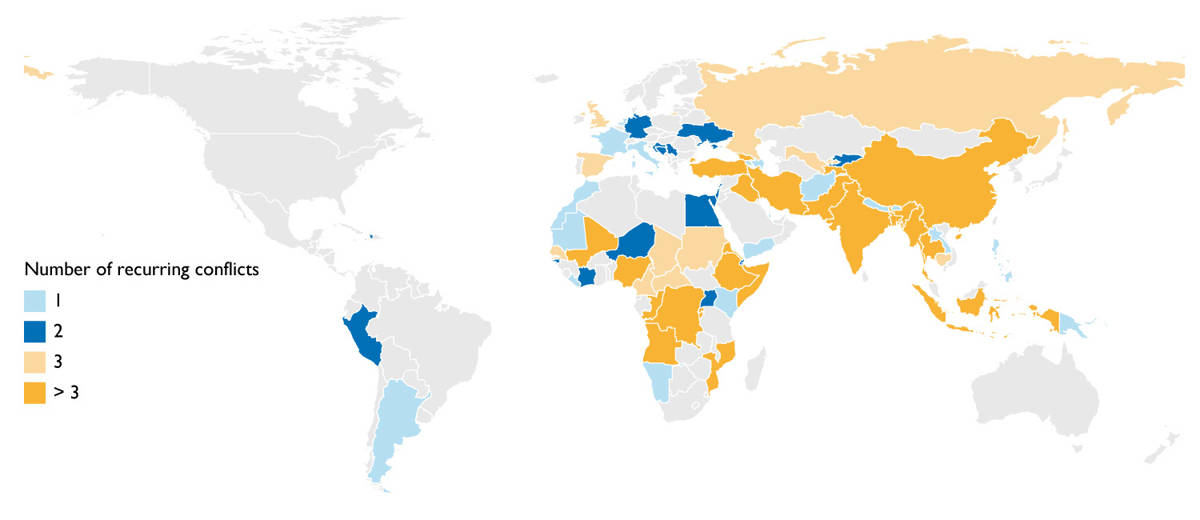The PRIO Conflict Recurrence Database extends on already existing data on organized violence by Uppsala Conflict Data Program (UCDP) (Gleditsch, Wallensteen, Eriksson, Sollenberg, & Strand, 2002; Sundberg & Melander, 2013). This new dataset expands and deepens our understanding of when, where and under what conditions armed conflicts persist and recur.
The episodes identified in the PRIO Conflict Recurrence Database follows the state-based conflicts identified by UCDP data, but are extended to include all violent event related to that conflict, rather than relying on the commonly used 25-death threshold. The conflict is counted as recurring when there is at least one calendar year between the last event in the previous episode, and the first event in the following episode. This is done both at the conflict level, and at the dyadic level, a dyad is defined by UCDP as a conflict between two armed actors, while a state-based conflict is defined as an armed conflict over a stated incompatibility, where at least one of the actors is the government of a state. One conflict can include more than one dyad. The total number of conflict-episodes identified between 1989 and 2018 is 347, with a total of 627 dyad-episodes.
We code information about the type of recurrence for each episode. This includes whether the recurrence is over the same or related issues, over different incompatibility, or an otherwise unrelated conflict over the same incompatibility. The dataset also includes information on whether the recurring conflict involves the same, overlapping or entirely new conflict actors.
The development of the database was funded by the UK Department for International Development (DfiD).






